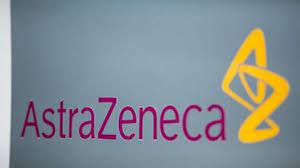AstraZeneca’s Dapagliflozin gets additional indication approval for treatment of Heart Failure in adults in India
The approval allows treatment of heart failure patients irrespective of the ejection fraction based on new trial DELIVER conducted by AstraZeneca AstraZeneca Pharma India Ltd. (AstraZeneca India), a science-led biopharmaceutical company, announced it has received

- The approval allows treatment of heart failure patients irrespective of the ejection fraction based on new trial DELIVER conducted by AstraZeneca
AstraZeneca Pharma India Ltd. (AstraZeneca India), a science-led biopharmaceutical company, announced it has received extended indication approval from the Drugs Controller General of India (DGCI) for its drug, Dapagliflozin in the treatment of heart failure (HF) in adults.
The approval is based on the detailed results from the DELIVER Phase III trial—the largest and broadest HF trial to date in patients with LVEF (left ventricular ejection fraction) >40%. AstraZeneca’s original research product dapagliflozin significantly reduced the composite of cardiovascular (CV) death or worsening heart failure in patients with HF with mildly reduced or preserved ejection fraction (EF), compared to placebo. The results were consistent across pre-defined subgroups. Dapagliflozin is already approved for HF with reduced ejection fraction. The additional indication will expand the indication for all types of HF irrespective of ejection fraction. Dapagliflozin is the only SGLT-2i which has shown mortality benefits in the pooled analysis of heart failure across LVEF.
Heart failure is a chronic, progressive disease impacting nearly 64 million people globally and about 10 million in India, which comprises of both heart failure with preserved ejection fraction and reduced ejection fraction. The available data from Indian HF registries show that HF patients in India are younger by 10-years, and the majority of the burden lies below 65 years of age, as compared to the patients from high-income countries.
Dr. Bagirath Raghuraman, Sr. consultant Interventional & Transplant cardiologist, Narayana Health, Bangalore, said, “Heart Failure is a condition which has high mortality rates irrespective of ejection fraction. Despite this, it is not well recognised or diagnosed. All people with breathlessness should be evaluated with a simple blood test and echocardiogram to rule out heart failure. This approval is significant for heart failure patients specifically for patients with preserved ejection fraction who have limited treatment options.”
Dr. Anil Kukreja, Vice-President, Medical Affairs and Regulatory, AstraZeneca India, added: “We are committed to push the boundaries of science and bring the best-in-class life changing original research medicines for patients across the world including in India. Our ground-breaking results from the DELIVER study indicates Dapagliflozin’s positive and significant impact on patients with heart failure even when their ejection fraction is above 40%. This approval reinforces our commitment to reducing the burden of this life-threatening disease and help patients across the HF spectrum live longer and healthier lives.”
With a concentrated focus and efforts towards delivery research and science-based solution, AstraZeneca’s DapaCare is a robust programme of clinical trials to evaluate the potential CV, renal and organ protection benefits of dapagliflozin. It includes more than 35 completed and ongoing Phase IIb/III trials in more than 35,000 patients, as well as more than 2.5 million patient-years’ experience. Dapagliflozin is currently being tested in patients without T2D following an acute myocardial infarction or heart attack in the DAPA-MI Phase III trial – a first of its kind, indication-seeking registry-based randomised controlled trial.
Notes
HF
HF is a chronic, long-term condition that worsens over time3. It affects nearly 64 million people globally, nearly 10 million in India and is associated with substantial morbidity and mortality5,6,14. Chronic HF is the leading cause of hospitalisation for those over the age of 65 and represents a significant clinical and economic burden6. There are several types of HF often defined by LVEF, a measurement of the percentage of blood leaving the heart each time it contracts, including: HFrEF (LVEF less than or equal to 40%), HFmrEF (LVEF 41-49%) and HFpEF (LVEF greater than or equal to 50%)2. Approximately half of all HF patients have HFmrEF or HFpEF, with few therapeutic options available2,7.
DELIVER
DELIVER was an international, randomised, double-blind, parallel-group, placebo-controlled, event-driven Phase III trial designed to evaluate the efficacy of dapagliflozin , compared with placebo, in the treatment of HF patients with LVEF greater than 40%, with or without T2D. Dapagliflozin was given once daily in addition to background therapy (regional standard of care [SoC] for all comorbidities, including diabetes and hypertension, with the exception of concomitant use of a SGLT2 inhibitor)8. DELIVER is the largest clinical trial to date in HF patients with LVEF above 40%, with 6,263 randomised patients8,9.
The primary endpoint was the time to first occurrence of CV death, hospitalisation for HF (hHF) or an urgent HF visit. The secondary endpoint includes the total number of HF events (hHF or urgent HF visit) and CV death, change from baseline in the total symptom score of the KCCQ at eight months, time to the occurrence of CV death and time to the occurrence of death from any cause8.
DELIVER was designed with broader inclusion criteria than prior trials in this patient population to also include patients who were hospitalised, recently hospitalised, or those with HF with improved LVEF, for whom evidence-based therapy is limited1,2. These findings build upon the previously reported results from DAPA-HF, the only SGLT2 inhibitor outcomes trial in HF to demonstrate a significant reduction in mortality, to provide further evidence to support the use of dapagliflozin as foundational therapy for patients with HF, regardless of ejection fraction.
The safety and tolerability profile of dapagliflozin in the DELIVER Phase III trial was consistent with the well-established safety profile of the medicine.






